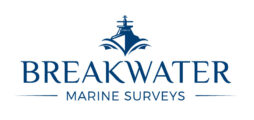
In the maritime industry, safety is paramount. One of the key areas that often goes overlooked but is critical to preventing accidents and ensuring the safety of workers is the management of hazardous gases in confined spaces. This is where gas-free services, particularly in the context of marine chemistry, play an essential role. Gas-free services are vital for ensuring that spaces aboard ships are safe for personnel to enter, mitigating the risk of exposure to toxic or explosive gases that can lead to severe accidents, including explosions and poisoning.
Understanding Gas-Free Services
Gas-free services refer to the process of making sure that spaces aboard vessels—such as tanks, holds, and cargo areas—are free from hazardous gases before any workers are allowed to enter. These hazardous gases can include carbon monoxide, hydrogen sulfide, methane, and other potentially deadly substances. Without gas-free services, workers would be at high risk of inhaling toxic fumes, which can lead to serious health issues, injuries, or even fatalities.
Marine chemistry plays a pivotal role in the process of gas-freeing. By understanding the chemical composition of gases that may accumulate in confined spaces, marine chemists can assess the air quality and determine when it is safe for workers to enter. They use specialized equipment to monitor the environment and verify that all dangerous gases are removed, ensuring the safety of those who will perform maintenance or repairs.
Why Gas-Free Services Are Crucial
- Preventing Hazardous Exposure
The primary importance of gas-free services lies in preventing harmful exposure to dangerous gases. In confined spaces, gases can build up to lethal levels without being immediately detectable. These spaces can trap gases for days, even weeks, without proper ventilation. Through gas-freeing, the air is analyzed and treated to eliminate any toxic substances, creating a safe environment for workers.
- Protecting Worker Safety
Shipyards, vessels, and offshore platforms are high-risk environments. The confined spaces within ships can often trap gases, leading to dangerous situations when not properly handled. Gas-free services are designed to ensure that workers entering these spaces are protected from life-threatening conditions. Safety measures, including testing for explosive atmospheres, and using personal protective equipment, are essential for reducing the chances of incidents.
- Ensuring Compliance with Regulations
The maritime industry is governed by strict safety regulations, especially when it comes to working in confined spaces. International standards like those set by the Occupational Safety and Health Administration (OSHA) and the International Maritime Organization (IMO) require that spaces are gas-free before entry. Compliance with these regulations not only ensures the safety of personnel but also helps companies avoid penalties and maintain their reputation for prioritizing worker welfare.
- Mitigating Environmental Risks
Marine chemists are also concerned with the environmental impact of the gases released from vessels. Unchecked gas emissions can contribute to air pollution, creating serious environmental hazards. Gas-free services reduce the potential for harmful gases to escape into the atmosphere, helping to preserve both human health and the marine environment.
How Marine Chemistry Enhances Gas-Free Services
Marine chemistry plays an integral role in the safety protocols of gas-free services. It involves the study of the chemical composition of gases, their behavior, and their interactions with materials and the environment. Through advanced testing and monitoring, marine chemists can detect even the smallest traces of hazardous gases, ensuring no dangerous concentrations go unnoticed. Their expertise allows for accurate assessment and treatment of confined spaces, reducing the risk of hazardous exposure.
Chemists use tools such as gas detectors, ventilation systems, and chemical agents that neutralize harmful substances. They also employ data analysis techniques to ensure that the atmosphere is continuously monitored, allowing for real-time adjustments and ensuring ongoing safety during maintenance or repair work.
Conclusion
Gas-free services are essential in the maritime industry, playing a critical role in ensuring the safety of workers and protecting the environment. Marine chemistry provides the expertise needed to detect and manage hazardous gases, ensuring that confined spaces are safe for personnel to enter. With proper gas-freeing procedures, shipowners, operators, and shipyard managers can safeguard their teams, comply with safety regulations, and mitigate potential environmental risks. Investing in gas-free services is not just a legal requirement, but a fundamental aspect of creating a safe, sustainable, and efficient maritime environment.

Hi, this is a comment.
To get started with moderating, editing, and deleting comments, please visit the Comments screen in the dashboard.
Commenter avatars come from Gravatar.